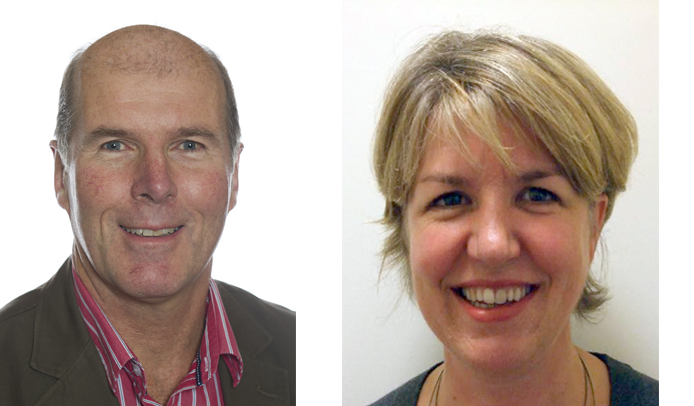Committee, Council & SIG Updates
Nasogastric Tube Special Interest Group (NGSIG)

Dr Barry Jones, Member and Wendy-Ling Relph, Chair NGSIG
Email: ngsig@bapen.org.uk
Website: www.bapen.org.uk/about-bapen/committees-and-groups/bapen-special-interest-groups/ng-sig
Never events: The Healthcare Safety Investigation Branch (HSIB) have recently questioned the status of nasogastric tube (NGT) insertion as a Never Event, arguing that as it can never be performed without risk, it can’t be a Never Event. We strongly disagree with this contention as this would imply that NGT misplacement is no longer to be taken seriously by Trust Boards and clinical staff. We would welcome any comments to: NGSIG@bapen.org.uk.
We plan to meet with HSIB and NHS England and NHS Improvement to discuss this further but there have been a further 28 Never Events from March 2020 to end of year, mostly due to problems with X-ray confirmation of position.
NGT/NJT (nasojejunal tube) insertion as an AGP (aerosol generating procedure): We continue to campaign strenuously to persuade the Department of Health and Social Care, Public Health England (PHE) and IPC Cell to change its guidance to enable a uniform use of personal protective equipment (PPE) across the UK. You will have noticed that the COVID prevention mantra has been altered to ‘Hands, Face, Space, Fresh Air’. This is no coincidence and reflects the pressure we have exhibited together with our colleagues at Fresh Air NHS for recognition of aerosol transmission. The AGP Alliance (Chair Dr Barry Jones of BAPEN) has been joined by new members Fresh Air NHS, Medical Supply Drive UK , the Confederation of British Surgeons and the Association of Respiratory Technicians and Physiologists. We have also joined forces with the Royal College of Nursing (RCN), Royal College of Midwives and British Medical Association to write to the Prime Minister in February, so far with no response. We then wrote to the Chief Medical Officers of the 4 nations with the RCN and elicited a rapid response from Professor Chris Whitty who has agreed to a meeting with us, which is to be arranged. Now that aerosol transmission has been admitted by PHE and SAGE (The Scientific Advisory Group for Emergencies), we believe that the next logical step is for close quarter transmission risk to be recognised too with the appropriate PPE. The use of surgical masks is not suitable, or legally permissible, for aerosol respiratory protection, so we are advocating for FFP3 masks for all on the frontline whether performing AGPs or not. Aerosol concentrations are at their greatest within 2 meters of an infectious patient. Medical Supply Drive UK, a charity founded by a group of surgeons, has already provided half a million re-usable FFP3 fitted masks to the NHS! Sadly, over 1000 healthcare workers have died during the pandemic in the UK. How many of these could have been avoided if our voices had been listened to last year we shall never know.

The Nutrition Society

Dr Bernadette Moore, University of Leeds, The Nutrition Society Clinical/Medical Advisory Council member
Email: office@nutritionsociety.org
Website: www.nutritionsociety.org
Twitter: @Nutritionsoc
Instagram: the_nutrition_society
LinkedIn: /nutrition-society
It has been a great start to 2021 for the Nutrition Society. I am delighted that both BAPEN and the Nutrition Society have signed a Memorandum of Understand, bringing both organisations into closer alignment and raising future prospect of valuable partnership projects. In light of COVID-19, this last year has illustrated more than ever how much we rely on our BAPEN colleagues working in the NHS, as well as how essential it is that healthcare practitioners understand the role of nutrition in medicine and health.
The Society’s Science Committee continue to deliver high-quality programmes, and January began with a timely and well attended member-led meeting examining the role of observational studies in nutritional science. There was great discussion around how the nutrition community can improve the methodology and planning of observational studies in future.
The Spring conference, ‘Gut microbiome and health’ took place as an online event on 29-30 March and bought together experts driving the latest technological advancements in the field of gut research. Speakers, panellists and delegates were able to debate new and innovative ways of understanding how nutrition impacts gut microbiome and how these can influence human health.
Similarly, the Society’s Training Academy (NSTA) continues to strengthen its diverse training package for nutrition and healthcare professionals. Since last year, when I delivered a webinar looking at the links between obesity and excess alcohol consumption with increasing rates of liver disease in the UK, the NSTA has continued to grow. It is now expanding to deliver an even more diverse programme of nutrition science training to develop an offering that appeals to a global audience. I look forward to seeing how its expansion strengthens the Society’s positive impact on the nutrition science sector. It is fantastic to see the webinars now available to watch ‘on demand’, so you can continue to develop your CPD portfolio at a time that suits you.
Now in its second year, the Nutrition Society Journal Club (NSJC) has expanded to include an additional student journal club aimed at developing critical appraisal skills for nutrition students. The NSJC is endorsed by the Association for Nutrition (AfN) and aims to promote and develop engagement, discussion, and critical appraisal of the latest research papers in the face of growing public and policy interest in nutrition science. The Journal Club is free for all Society members and is a great way to enhance your CPD portfolio.
Along with some BAPEN colleagues, I continue to contribute to the AfN’s Interprofessional Group in my role as Clinical/Medical Advisory Council Member for the Society. Although this has been ongoing for some time, some promising progress has been made in last few months towards an agreed upon nutrition curriculum for medical undergraduate education. The interactions between nutrition-related disease and COVID-19 has also highlighted the importance of incorporating nutrition into the medical curriculum and we hope to see these promising discussions continue to fruition.
Finally, a reminder that the Nutrition Society is hosting its annual Summer Conference as a hybrid event with both face to face and online access options on 6-8 July 2021. This year’s theme is ‘Nutrition in a Changing World’ and registration is open until 30 June 2020. Group bookings are available meaning groups of 7 or more will receive discounted registration fees. Further information about the conference can be viewed here.
All my very best,
Bernadette
Return to top
